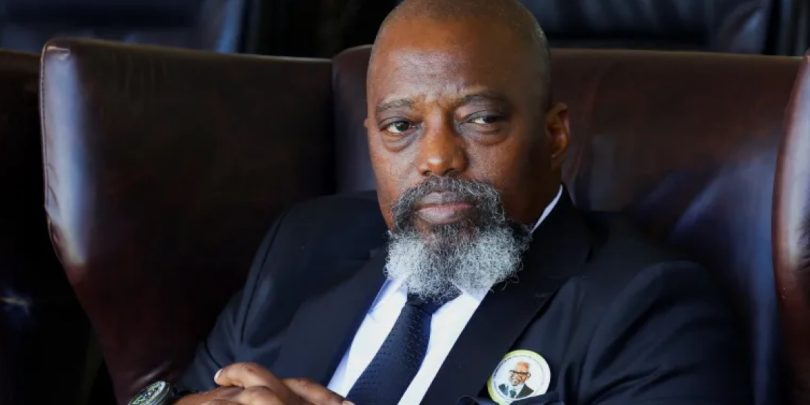Former President of the Democratic Republic of Congo (DRC), Joseph Kabila, has been sentenced to death in absentia by a military court on charges of treason, war crimes, and crimes against humanity.
The 54-year-old, who ruled the country for 18 years before handing over power to President Félix Tshisekedi in 2019, was found guilty of supporting the M23 rebel group, accused of widespread atrocities in the mineral-rich eastern region of the country.
The charges against Kabila include murder, sexual assault, torture, and insurrection.
Although he has strongly denied the allegations, he refused to appear in court.
Describing the trial as “arbitrary,” Kabila dismissed the proceedings as an “instrument of oppression.”
His current whereabouts remain unknown.
From Leadership to Exile
Kabila rose to power in 2001 following the assassination of his father, Laurent-Désiré Kabila.
He remained in office until 2019, when he handed power to Tshisekedi. However, relations between the two soured, and by 2023 Kabila had gone into self-imposed exile.
Earlier this year, Kabila attempted a political comeback, announcing in April that he wished to help resolve the conflict in the east.
The following month, he traveled to Goma, a city controlled by M23 rebels at the time.
President Tshisekedi, however, accused him of being the mastermind behind the rebel group’s operations.
In response, Congolese senators voted to strip him of legal immunity, paving the way for his prosecution.
Escalating Conflict in the East
The M23 rebellion has intensified conflict in eastern DRC, where the group seized control of Goma, Bukavu, and two major airports earlier this year.
The violence has displaced thousands of civilians and worsened an already dire humanitarian crisis.
Internationally, the United Nations and several Western nations have accused neighboring Rwanda of backing M23 and sending troops across the border.
Rwanda has denied the allegations, insisting its actions are aimed at preventing the conflict from spilling into its territory.
Although a ceasefire agreement was signed in July, violence has continued, leaving the region unstable and the government under increasing pressure to restore order.

